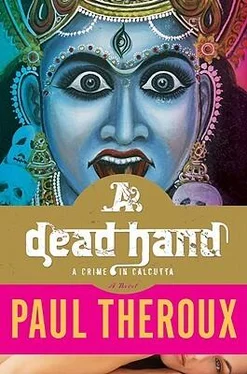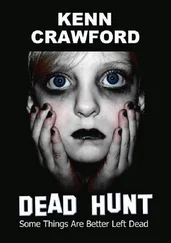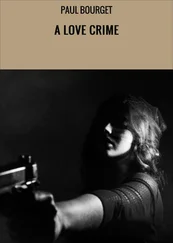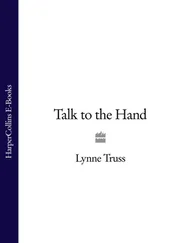"We're proud of what we're doing. My mother created this whole business from nothing."
"That's admirable."
"We're not breaking any laws."
"Good. Now would you mind showing us around?"
"We're one of the biggest carpet exporters in Mirzapur. We're supporting a lot of families."
He flounced out of Mr. Joshi's office and we followed. Hurrying beside him, Mr. Joshi opened doors and stood aside as Charlie said, "Design room — color plates are made here," and on a low platform a dozen men worked over large sheets of paper tacked to boards, inking patterns in bright colors.
In the next room, men were transferring the colored patterns onto a large piece of graph paper, one square at a time.
"Each square represents one knot," Mr. Joshi said.
The men smiled hello from their workstations, waving shyly as we left, hands on hearts.
"Why is this door locked?" I asked as we walked farther down the narrow corridor.
"Looms," Mr. Joshi said. "The weaving room." And he opened the padlock on the tongue of the hasp. He eased the bolt and opened the door.
"I don't care what you think. We're not ashamed of this," Charlie said.
The door gave onto a large, high-ceilinged room. It could have been a school. I sensed a sudden hush, even over the rattle of the wooden looms. My first thought was that it was a schoolroom, the children small and attentive, all of them barefoot, climbing on benches, clinging to the big looms, some of them knotting yarn or stringing the vertical warps, others crouching, fastening knots, still more hammering, beating the interlocking strings and knots.
That was my first impression, little scholars, silenced by the entrance of the headmaster. But I quickly saw their solemnity, their fear, the intensity of their concentration — they were cowed and compact, like prisoners. It was a prison, a labor camp, filled with wooden frames and clattering; it was a mass of loose ends; it was a confusion of small souls toiling with tiny hands.
"Children," I said. "They're all kids."
I walked over to a loom, and when I approached a boy of ten or twelve he left off plucking at a knot and held up his hands to cover his face, as though he expected me to hit him.
I smiled and stepped back. I said softly, "I know your name."
"Yes, uncle."
"I've forgotten what it is."
"Jyoti, uncle."
The self-possessed boy I had met at the Lodge, mouse face, bat ears, tiny head, narrow shoulders, the little soldier, broken now. Ma is our mainstay. I reached to shake his hand. He extended his hand and I held it softly and turned it so that I could see his fingers. His hand was claw-like, his fingers reddened, the fingertips rubbed raw.
"He has no fingerprints."
But Charlie was smirking, standing next to Howard at the doorway.
"Go away or else I'll call security. Then I'll have you screaming the place down."
"I'm reporting you," Howard said.
"I told you, doll. It's all within the law."
"No, it's not," Howard said.
Charlie said, "Then tell us the names of anyone in this country who's been convicted of using kids. Ha! Get out, doll."

FROM THE BEGINNING, my first visit more than six weeks earlier, I had regarded the Lodge of Mrs. Unger in Alipore as a refuge, a place of safety, of health and joy, where she was the protector, the guiding light, the mother of it all — Ma, great soft bosom in this itchy city of sharp edges and contending voices.
Now I saw the Lodge as a dangerous and unhappy place, and Mrs. Unger as the sinister force that tyrannized over it. The smell of it was the smell of the sacred river, in India an odor of sanctity, which was also a whiff of stagnation, an odor of life and of death.
I had come to the Lodge unannounced, but she was waiting for me on the stone porch behind the cracked balusters, flanked by the worn, rain-pitted, almost featureless lions. I tried to imagine what this great neoclassical mansion might have looked like in its heyday, but I could not see it, could not re-create it from this cracked façade and exposed brick, from the burrs and bruises on its fluted columns. It was both monumental and ruinous, like Calcutta, with the same human face, gaping windows, cheeks of fissured stucco, a mouth-like door, open in a hungry appeal like the beggars at car windows at street corners.
"I've been expecting you," Mrs. Unger said. "I thought you'd be here yesterday."
"I had some business to attend to."
Whenever I was away from her, I forgot how lovely she was, her feline features, the cast of her face, her high cheekbones, her full lips, made fuller by her slightly protruding teeth. She was beautiful, stately as a priestess. She had a broad forehead, a tipped-up nose, and greeny gray eyes (depending on the light), and her hair was going prematurely silver in places — though she was younger than me, she seemed much older. Her body so slender in her silken sari, her narrow bony feet stippled with henna.
But this beauty today looked devilish, her smile — her teeth — frightening. Her two side teeth — eyeteeth, I suppose — bulged against her lips when she frowned, and glistened, looking more sinister, when she smiled. She was not tall, but she stood erect and gave the impression of height, and so she seemed dominant.
"I take it you've been successful," she said. "Come inside."
In the Lodge the sounds of children's laughter unnerved me, as if they were at play, scampering at the edge of a precipice.
"I'd rather sit in the garden," I said.
"But I owe you a treatment."
The word struck fear into me now. How easily everything was reversed. Her beauty repelled me; the promise of a treatment was like a threat.
"I look forward to it," I said, hoping she'd believe me.
"Bijoy, bring some tea," she said to an apprehensive servant I had never seen before.
We walked together down the staircase to the side of the house where the garden was luxuriant. The pale trunks of the banyan trees twisted into the brick wall, the insinuating fingers of the long roots, the knuckles of the fatter wrinkled ones, the mossy stones, the gurgle of the fountain — the garden had seemed fertile before, a source of life. Now it was sinister, all of it, the sound of the falling water like a repeated warning.
"Sit," she said, patting a bench.
This moss-covered statuary I had seen from the downstairs lobby, the damp bricks, the paved paths, the fountain at the pool — a marble cow's head at its center, spewing water through its rounded mouth. Mrs. Unger smiled, drawing her lips back, showing her teeth, letting her tongue loll hungrily.
"Tell me what you've found. Put my mind at rest."
Instead of sitting where she had beckoned me with her hand, I took a seat at the far end of the bench so I could look at her. My face was damp from the humid heat of the garden.
"I guess you know I've been to Mirzapur. Charlie must have told you."
"I've heard a number of versions. Charlie's. Mr. Joshi's. Even the redoubtable Mr. Ghosh."
"You're resourceful."
"Not half as resourceful as you," she said. "Ah, here's our tea."
She spoke in her actressy voice, her lines like lines in a play, as when I'd first met her at the Oberoi Grand. And because she seemed so well rehearsed, I was especially on guard.
The waiter in the white uniform spread a cloth over a stone tabletop and set out the tea things. Even those cups and saucers seemed worryingly like props.
"You can go, Bijoy." Mrs. Unger poured the tea into the two cups. "So, was Rajat fantasizing, or was there really a dead body?"
"There was a body."
Читать дальше













